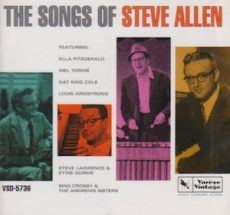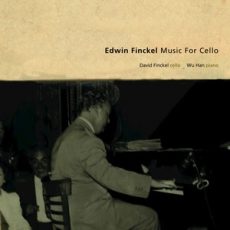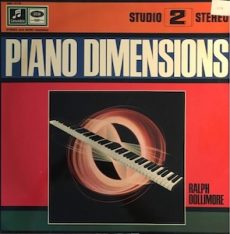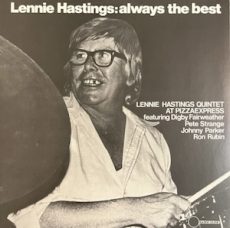
Daily Dose Of Jazz…
Stephen Valentine Patrick William Allen was born in New York City, on December 26, 1921. As an only child and with his father dying when he was raised on the South Side of Chicago, Illinois largely by his mother’s Irish Catholic family. Running away from home at 16 he easily took to begging. A short stint in the Army was derailed by asthma and he was discharged.
He was a pianist and a prolific composer. By his own estimate, he wrote more than 8,500 songs, some of which were recorded by numerous leading singers. Allen won the 1964 Grammy Award for Best Original Jazz Composition for “Gravy Waltz, for which he wrote the lyrics. His songs have been performed and/or recorded by Count Basie, Tony Bennett, Bobby Darin, Ella Fitzgerald, Mark Murphy, Judy Garland, Aretha Franklin, Lionel Hampton, Claire Martin, Oscar Peterson, the McGuire Sisters and Ray Brown among otheres.
He also wrote more than 50 books, including novels, children’s books, and books of opinions, including his final book, Vulgarians at the Gate: Trash TV and Raunch Radio published in 2001.
Pianist, composer, writer, actor, comedian, television and radio personality Steve Allen, who in 1954 co-created and was the first host of The Tonight Show, died due to a ruptured blood vessel on October 30, 2000 in Los Angeles, California. He was 78.
More Posts: composer,history,instrumental,jazz,music,piano,writer

Daily Dose Of Jazz…
Edwin A. Finckel was born on December 23, 1917 in Washington, D.C. to musical parents and was the youngest of six children. Left to his own devices his artistic talents won him a scholarship at the Corcoran School of Art. Finding access to a piano within a year he had taught himself to play, albeit without the ability to read music. He took to jazz although he also showed skill as a tennis player while still a teenager.
Well regarded for his ability to improvise music he went on to arrange others and later composed over 200 of his own melodies. He appeared professionally as a teenager and he went on to introduce string instruments into his arrangement for big bands. His best known song may be Where Is The One, which was recorded by Frank Sinatra..
In the Forties he wrote songs for film, was chosen as a representative of a musical, then went into teaching in the music department at Far Brook School in New Jersey for 39 years. There he gave private lessons, conducted the choir and orchestra, and wrote much of the music that the children sing. He continued to perform jazz and in his forties he also wrote classical music.
Pianist, composer and arranger Edwin Finckel, who ran a summer camp with his wife for 17 years while performing jazz and composing classical music, died on 7 May 7, 2001 at 83 in Madison, Wisconsin.
More Posts: arranger,composer,educator,history,instrumental,jazz,music,piano

Daily Dose Of Jazz…
Ralph Dollimore was born on December 20, 1930 in Ealing, London, England. During the 1950s he worked with Kenny Graham, Terry Brown Sextet, Jimmy Walker Quintet, Ted Heath, Eric Winstone, Harry Bence, Vic Ash, Geraldo. He was Petula Clark’s pianist in variety shows around the United Kingdom in 1959.
During the Sixties he accinoanied singer Matt Monro, led his own trio, and once again joined Ted Heath. The 1970s and 1980s saw Ralph as a pianist in Monte Carlo hotel. Returning to Britain he formed his own small group.
Pianist, arranger and composer Ralph Dollimore died on August 25, 1988 in London, England.
More Posts: arranger,bandleader,composer,history,instrumental,jazz,music,piano

Daily Dose Of Jazz…
Peter Charles Strange was born on December 19, 1938 in Plaistow, Newham, London, England. He played violin as a child before switching to trombone as a teenager.
His first major gig was with Eric Silk and his Southern Jazz Band when he was just 18 years old. In 1957, Silk’s clarinetist Teddy Layton split off and formed his own band, and Strange went with him. Called up for National Service in 1958 he became a bandsman in the Lancashire Fusiliers, whilst serving in Cyprus.
Following his discharge from service Peter played with Sonny Morris, Charlie Gall, and Ken Sims, then joined Bruce Turner from 1961 to 1964. After 1964, Turner went into partial retirement for about 10 years, so he played off and on with Freddy Randall, Joe Daniels, and Ron Russell, but not carrying any full-time associations. He returned to play with Turner again permanently in 1974.
In 1978 co-founded the Midnite Follies Orchestra with Alan Elsdon. 1980 saw Strange founding the five-trombone ensemble, Five-A-Slide, which featured Roy Williams and Campbell Burnap. He joined Humphrey Lyttelton’s band in 1983, and remained with the ensemble until he died.
Trombonist, arranger and composer Peter Strange, who played with his own side group, the Great British Jazz Band, died of cancer at the age of 65 on August 14, 2004 in Banstead, Surrey, England.
More Posts: arranger,bandleader,composer,history,instrumental,jazz,music,trombone

Daily Dose Of Jazz…
Róbert Rátonyi was born December 13, 1953 in Budapest, Hungary. At the age of six he started to learn solfeggio before turning to the piano. He later became a student of Klára Géczy Fazekas, however, following his art studies and the grammar school graduation, he attended the Bartók Béla Music Conservatory, specializing in jazz.
His style of playing is influenced by Bill Evans, Ahmad Jamal, Bob James, Kenny Barron, Andy Laverne and Herbie Hancock. Beginning in 1975 he has played together with all leading Hungarian jazz musicians in concerts and festivals at home and abroad.
Besides jazz, he is one of the most frequently engaged studio musicians. He has written and composed music for numerous films, theatre, shows and advertisements. He is also a consummate accompanist for many vocalists.
Pianist, arranger, and composer Róbert Rátonyi, known for his work in jazz and studio music, while also teaching jazz piano and electronic instruments, has been awarded the Artisjus Award and continues to perform and record.
More Posts: arranger,bandleader,composer,history,instrumental,jazz,music,piano


